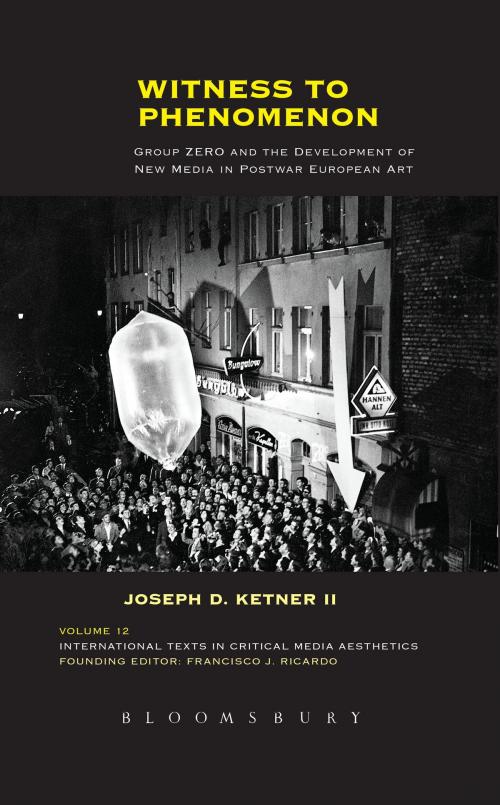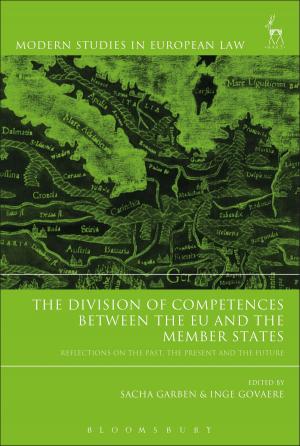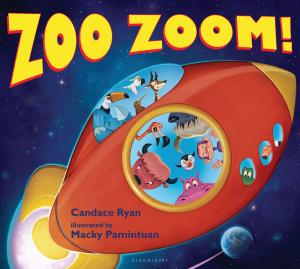Witness to Phenomenon
Group ZERO and the Development of New Media in Postwar European Art
Nonfiction, Art & Architecture, General Art, Social & Cultural Studies, Social Science, History| Author: | Joseph D. Ketner II | ISBN: | 9781501331190 |
| Publisher: | Bloomsbury Publishing | Publication: | December 28, 2017 |
| Imprint: | Bloomsbury Academic | Language: | English |
| Author: | Joseph D. Ketner II |
| ISBN: | 9781501331190 |
| Publisher: | Bloomsbury Publishing |
| Publication: | December 28, 2017 |
| Imprint: | Bloomsbury Academic |
| Language: | English |
Witness of Phenomenon articulates a fresh examination of the German Group Zero-Heinz Mack, Otto Piene, and Günter Uecker-and other new tendency artists, who rejected painting and introduced new art media in postwar Europe. Group ZERO evolved into a network across Europe- Amsterdam, Milan, Paris, and Zagreb. This pan-European affiliation of artists generated a continuous stream of innovative artistic statements through the 1960s, incorporating non-traditional materials and new technologies to create kinetic art, light installations, performances, immersive multimedia installations, monumental land art, and the communication media of video and television. They transformed the visual arts from the inanimate objet d'art to a sensory experience by adopting the ascendant philosophy of Phenomenology as their conceptual foundation. Drawing from a decade of research on unpublished archives of the artists and critics of this period, this publication positions Group ZERO as a catalytic art moment in the transition from modern to contemporary art.
Witness of Phenomenon articulates a fresh examination of the German Group Zero-Heinz Mack, Otto Piene, and Günter Uecker-and other new tendency artists, who rejected painting and introduced new art media in postwar Europe. Group ZERO evolved into a network across Europe- Amsterdam, Milan, Paris, and Zagreb. This pan-European affiliation of artists generated a continuous stream of innovative artistic statements through the 1960s, incorporating non-traditional materials and new technologies to create kinetic art, light installations, performances, immersive multimedia installations, monumental land art, and the communication media of video and television. They transformed the visual arts from the inanimate objet d'art to a sensory experience by adopting the ascendant philosophy of Phenomenology as their conceptual foundation. Drawing from a decade of research on unpublished archives of the artists and critics of this period, this publication positions Group ZERO as a catalytic art moment in the transition from modern to contemporary art.















